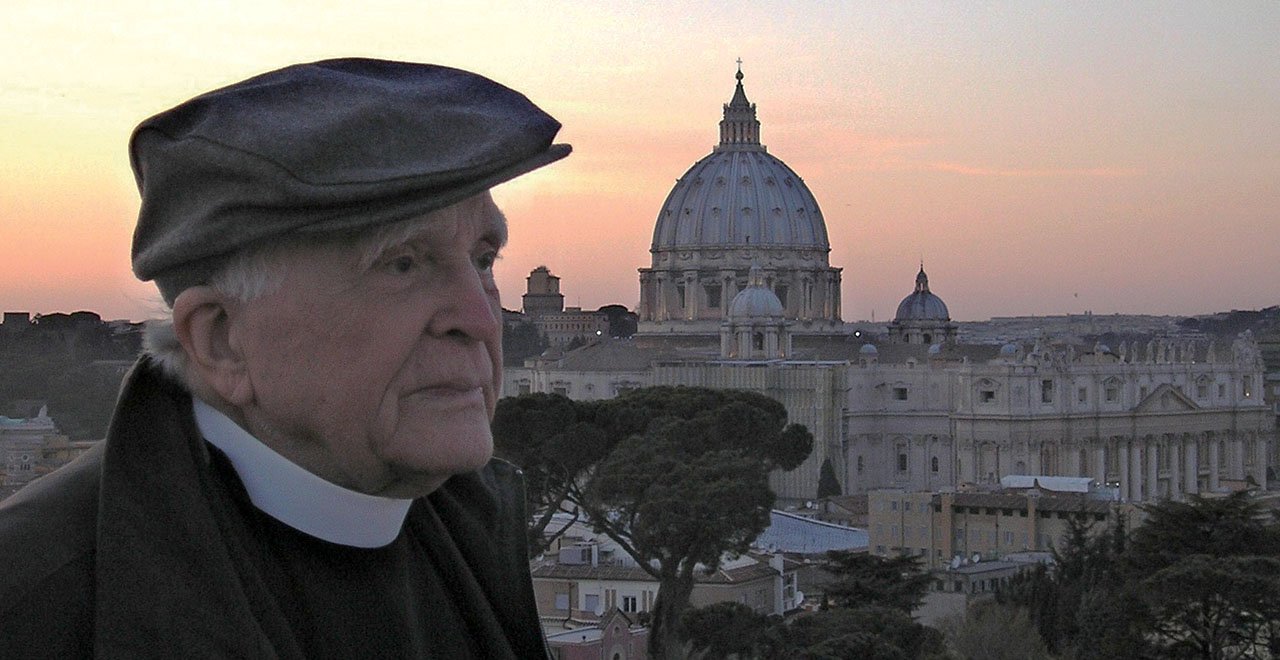
In the footsteps of a Templeton prize winner
Conference in remembrance of Stanley L. Jaki OSB
10 December 2019
Location: Hungary, Győr
Czuczor Gergely Bencés Gimnázium Széchenyi tér 8-9
Program
10.00-10.10 Welcomer
10.10-10.20 Szilveszter Vizi E.: Jáki Szaniszló OSB a tudós, a hit védelmezője
10.20-10.40 Zoltán Frenyó (MTA-BTK) The Cosmological Argument in Stanley L. Jaki’s Thinking, and the Roads of the European Metaphysics
Starting from Stanley L. Jaki’s work God and the Cosmologists, and with respect of the cosmological argument, the lecture tries to compare the concepts of the created world and the eternal world, and strives to show the points of contact between the Greek and the Christian ontology.
10.45-11.05 László Székely (MTA-BTK) John-Paul II and Stanley Jáki on the Relation between Science and Theology
In the second half of 20th century the Vatican discussed the relation between science and theology two times on the highest level: in the encyclical of Pius XII On the Proof of Existence of God in the Light of Modern Natural Science in 1951 and in the address of John Paul II on Galileo’s case on 31 October 1992. Although already the encyclical of 1951 had laid emphasis on the difference between science and theology, the analysis of the relation between these two basic fields of human thought by John Paul II is considerably more discerning and profound. Of course the approach presented by him did not emerge from one day to another: It was prepared by a committee delegated by the Pope, and in turn this committee also could base its investigations upon the results of philosophical and theological researches done in this topic in the four decades since elapsed. Stanley Jáki (who was named by John Paul II an honorary member of the Pontifical Academy of Sciences in September 1990) was one of the most relevant researchers working in this field, whose investigations (and especially those concerning the relation between scientific cosmology and theology) were directed exactly at the foundation and elaboration of an approach represented later by the Pope.
In my talk I will compare the views of John Paul II and Stanley Jáki on the relation of science and theology, and indicate that the point of view represented by the Vatican on its most higher level in 1992 corresponds to the concept forming the focus of Jáki’s works. Whereas Jáki had to take a critical point of view concerning the encyclical by Pius XII, his approach and the Vatican’s view got into harmony with each other in 1992: one may say that John Paul II approved exactly the view held, along with others, by Jáki. On the other hand, our honour for him would not be sincere if we remained in silence about the moments of his works in which we don’t agree with him. At the end of my talk as such moments I will briefly mention his criticism of Teilhard de Chardin’s cosmology and an aspect of his concept of the relation between physics and Gödel’s’ theorem.
11.10-11.30 Ferenc András (PE-MFTK) Faith, knowledge and understanding — Their role and significance in contemporary language philosophy
The traditional, medieval, distinction of faith and knowledge, faith and reason, has a different focus but has the same importance in modern language philosophy in the XX-XXI centuries. The focus of my presentation is the change of conceptual roles. Behind these can be seen the paradigm shift of the modern age. In my historical review, I examine turning points and the reasons for turning points that made the concepts of "knowledge" and "understanding" inseparable from the social character of man.
11.50-12.10 Péter Soltész (BGE) Jaki-Islam-Benedick
The analysis of the relationship between faith and reason goes along the tremendous scientific oeuvre of Father Stanley Jáki. He was predestined to this by his dual education: first, he received his doctoral degree in theology in Rome and some years later a degree in physics under the guidance of Victor F. Hess, a Nobel Prize physicist. In addition, his dedication to studying helped him achieve important results in the field of comparative research of large religions in the world, with special interest in the relationship between religion and the mind.
Father Jáki considered the birth of modern natural sciences to start from the conceptualisation of the three fundamental laws of motion. One of his most beautiful results was the demonstration of why the environment of non-Christian religions was not appropriate for the conception of modern science and why the Christian spark made it possible. This comparative study generated countless side products and led to serious consequences. In particular, Jáki’s thoughts resulted in tangible effects on the thinking of the Pope Benedict XVI, who, already as Cardinal Ratzinger, got acquainted with several works of Father Jáki. This intellectual cross fertilisation is especially detectable in speeches touching upon Christian and Islamic relationship showing that the Holy Father, having no firm background in natural sciences, trusted Jáki’s thinking in the field of religion vis-à-vis science.
An outstanding example is the first papal speech (Regensburg) of Benedict XVI, misinterpreted — on purpose or not — by western liberal journalists, generated worldwide indignation waves in mainstream western journalist circles as well as in the ranks of Islamic believers. The striking conjecture of a hidden relation between the Regensburg speech — and other discourses — of the Pope and his departure from the papal throne may not be far from truth.
12.15-12.35 Neuman Péter (BME-GTK) Verseny a kevesebb tudásért — stratégia váltások a modern fizikában avagy: Mit írnánk ma Hilbert sírjára?
12.40-13.00 Gergely Bognár (Révai Miklós Gimnázium és Kollégium) The dogmas of science
Religion is being frequently criticized because of its dogmatical base, while the fact is mostly forgotten, that the natural sciences are based on evidences, or if you like dogmas, just as religion. This presentation reveals some natural scientific evidences without any completeness and through the work of Stanley L. Jaki and based on the history of science it shows their religious roots.